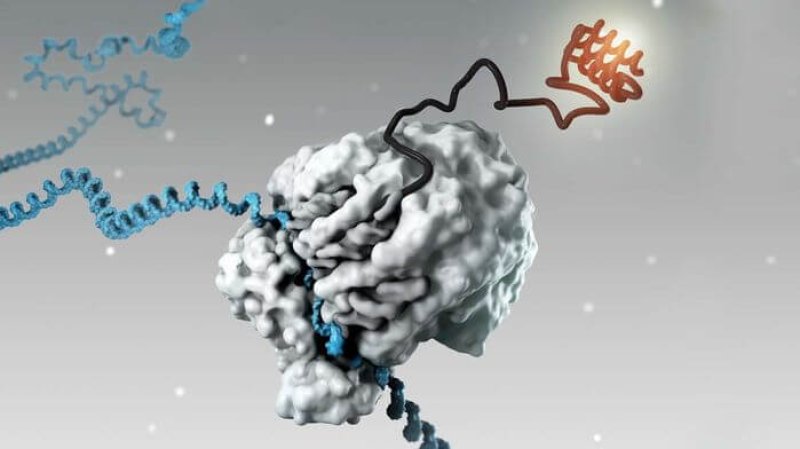“Why are we so passionate about messenger RNA?” Moderna President Stephen Hoge asked the attentive audience. “It starts with the question of life,” he explained. “… In our language, mRNA is the software of life.”
Cells use mRNA to translate the static genes of DNA into dynamic proteins, involved in every bodily function, Hoge explained. Biotech companies make some of these proteins as drugs in large vats of genetically engineered cells. It’s a time-consuming and costly process.
…
In theory, it could prompt proteins to be made in your body. It would put the drug factory inside you.
The idea Hoge was selling is straightforward, but its implementation is not. When mRNA is injected into the body, it triggers virus-detecting immune sensors. That event causes cells to shut down protein production, thus foiling the therapy. And even if the molecule makes it into the cell—another challenge that has long vexed drug delivery experts—the mRNA might not make enough protein to actually be useful.
…
It’s all part of CEO Stéphane Bancel’s long-term vision to transform the drug industry the same way that the first biotech companies, like Amgen, Biogen, and Genentech, did when they began developing protein therapies called biologics in the eighties. Biologics are now the fastest-growing segment of the drug industry, and in theory, mRNA could replace them all.
Read full, original post: Can mRNA disrupt the drug industry?































